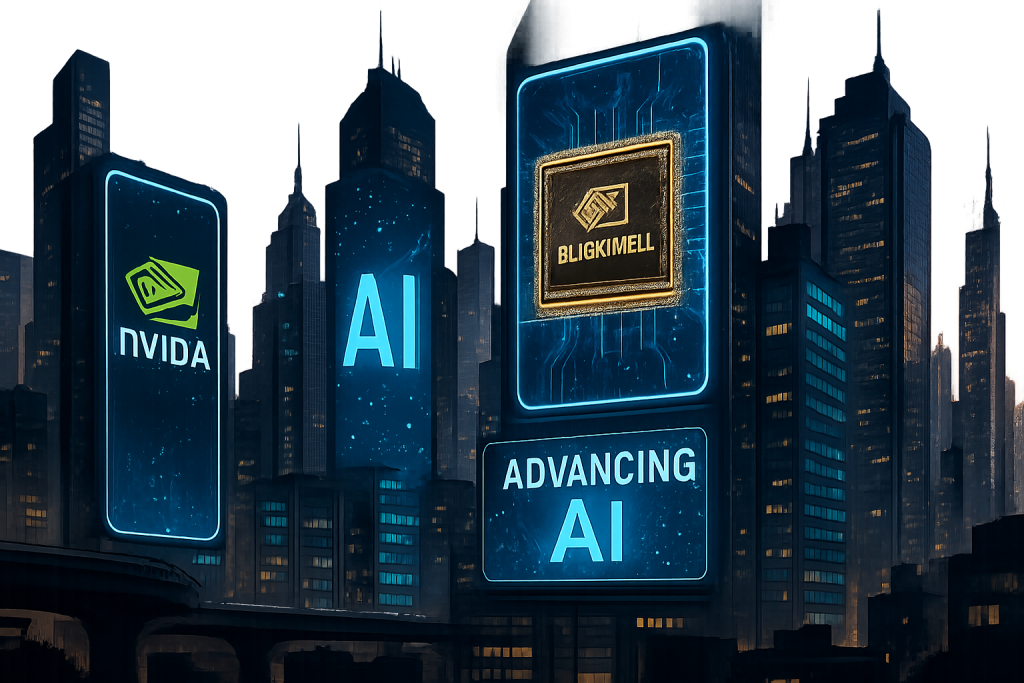The year is 2025, and the echoes of technological revolution reverberate louder than ever. At the heart of it all stands Jensen Huang, Nvidia’s CEO, a figure almost mythical in the AI landscape. Fresh off the stage at VivaTech in Paris, Huang didn’t just deliver a keynote; he laid out a vision, a bold claim that AI is “the greatest equalizer.” It’s a statement that’s both inspiring and, depending on your perspective, a little terrifying. Like a tech-savvy Gandalf, Huang isn’t just wielding power, he’s attempting to shape the destiny of an entire continent.
His central message? AI has the potential to level the playing field, democratizing technology by making powerful computing resources more accessible. Imagine a world where the computational might once reserved for sprawling tech giants is available to startups in Strasbourg and independent developers in Inverness. That’s the promise Huang dangled, a digital utopia powered by Nvidia’s silicon.
But Huang’s European charm offensive wasn’t just about lofty ideals. He announced concrete AI infrastructure projects, a massive investment in the continent’s technological future. The crown jewel? A partnership with Mistral AI, a French startup quickly becoming a European champion in the AI race. Nvidia will be deploying a staggering 18,000 Blackwell chips in France, providing Mistral with the horsepower to compete with the likes of OpenAI and Google. Think of it as arming the French resistance with the latest, most powerful lightsabers.
The Blackwell chip, for those not fluent in tech jargon, is Nvidia’s latest GPU architecture, designed specifically for AI workloads. It’s a leap forward in processing power, allowing for significantly faster training and deployment of AI models. To put it in perspective, it’s like upgrading from a horse-drawn carriage to a warp-speed starship. The implications for industries like natural language processing, image recognition, and scientific simulation are enormous.
Beyond France, Huang’s European tour included collaborations in Germany, Italy, Spain, Finland, and the UK. Automotive giants BMW and Mercedes-Benz are leveraging Nvidia’s technology to develop advanced autonomous driving systems. Perplexity, a rising star in the AI search space, is partnering with Nvidia to push the boundaries of information retrieval. It’s a full-court press, a strategic move to solidify Nvidia’s dominance in the European AI market. This isn’t just about selling chips; it’s about building an ecosystem, a symbiotic relationship where European innovation fuels Nvidia’s growth and vice versa.
However, Huang’s message wasn’t all sunshine and rainbows. He issued a stark warning: Europe’s cautious approach to AI regulation could lead it to fall behind the U.S. and China. It’s a familiar refrain, this tension between innovation and regulation. On one hand, excessive regulation can stifle creativity and slow down progress. On the other, a lack of oversight can lead to unintended consequences, ethical dilemmas, and even outright harm. It’s a tightrope walk, a delicate balancing act that Europe must master to stay competitive.
Huang’s solution? “Sovereign AI” systems that align with local values and ensure data control. The idea is to build AI that reflects European principles, protecting privacy, promoting fairness, and ensuring transparency. It’s a direct response to concerns about the dominance of American and Chinese tech giants, a desire to maintain autonomy and control over its own technological destiny. In essence, Huang is advocating for a digital Maginot Line, but instead of concrete bunkers, it’s built with code and algorithms.
He also proposed a fascinating, if slightly unsettling, approach to AI governance: layered oversight with multiple AIs supervising each other. It’s the AI equivalent of “trust, but verify,” but instead of human auditors, it’s a network of AI sentinels keeping watch. Imagine a committee of HAL 9000s, each tasked with ensuring the others don’t go rogue. It’s a concept straight out of science fiction, raising questions about accountability, bias, and the potential for unforeseen interactions. Who watches the AI watchers?
Of course, the usual suspects of AI anxieties were raised. Job losses. Surveillance. Existential threats. Huang, ever the optimist, brushed aside these concerns with a wave of his hand, expressing confidence that well-designed AI systems can manage their own risks. It’s a bold claim, one that requires a leap of faith. Can we truly trust AI to regulate itself? Or are we simply setting the stage for a digital dystopia, where algorithms rule and humanity is relegated to the sidelines?
Huang’s meetings with European leaders, including French President Emmanuel Macron, highlight AI’s growing importance as a strategic national priority. It’s no longer just a technological arms race; it’s a geopolitical chess match, with nations vying for dominance in the AI landscape. The stakes are high, with the potential to reshape economies, societies, and even the balance of power. Like the space race of the 20th century, the AI race of the 21st century will define the future.
The financial implications are staggering. Nvidia’s stock price has already soared in recent years, fueled by the insatiable demand for its AI chips. Huang’s European initiatives will only further solidify Nvidia’s position as a dominant player in the global AI market. But the economic impact extends far beyond Nvidia. The rise of AI is creating new industries, disrupting existing ones, and transforming the very nature of work. It’s a technological tsunami, and we’re only just beginning to feel its force.
Ultimately, Jensen Huang’s European tour was more than just a business trip. It was a statement of intent, a declaration that AI is not just a technology; it’s a force that will shape the future of humanity. Whether that future is a digital utopia or a technological dystopia remains to be seen. But one thing is certain: the AI revolution is here, and it’s coming to a continent near you.
Discover more from Just Buzz
Subscribe to get the latest posts sent to your email.


